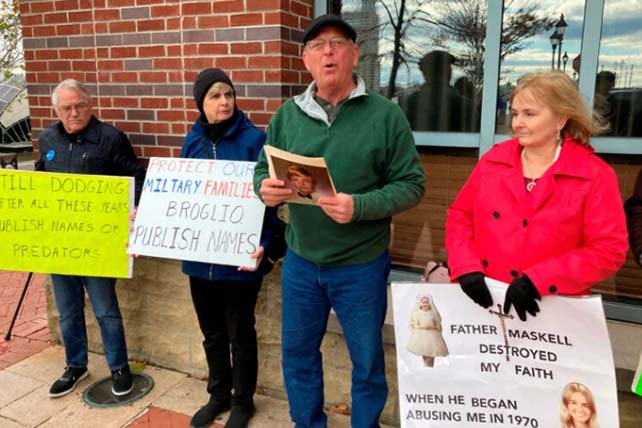“How might survivor stories become part of a new catechesis?” he asked. “How might it be integrated into the fabric of who we are as Catholic believers?”
For his project, the Rev. Bryan Massingale, a priest in the Archdiocese of Milwaukee and a theological ethicist at Fordham, grappled with the link between white supremacy and the church’s failed response to clergy abuse of Black people. “In many ways this report is really the only one in existence yet to take the experience of African Americans and make it central,” he told RNS.
Massingale analyzed the limited data available on Black Catholic survivors and discovered several barriers to knowing the full extent of their trauma. Most Catholic dioceses don’t collect data on survivors’ race and ethnicity. Race-specific barriers also prevent Black folks from reporting abuse in the first place, as they may not trust law enforcement. They may fear that they won’t be believed by authorities or by a jury, particularly if the abuse was perpetrated by a white priest in good standing.
The church can help more Black survivors, Massingale said, by collecting survivors’ demographic data and creating forums designed explicitly for Black survivors and other victims of color to process their trauma. Many Black victims, he said, “find it very difficult to tell their story without talking about how race impacted their experience.”
RELATED: Prominent Chicago Priest Accused of Sexual Abuse of Minor
In addition, Massingale said those who present education materials on clergy sexual abuse need to rethink the images they include — “Do we allow victims/survivors/copers of color to see themselves as part of this narrative?” he asked. The church may also need to reevaluate what terms are used to describe those who’ve been abused. Black communities who’ve long had to cope with white supremacy, for instance, might prefer the term “coper” over such words as “victim” or “survivor.”
While Massingale and McGlone focused on survivors’ stories, the Marquette team studied how to best equip teens to identify abusive power dynamics. The team found 161 different educational materials for children across 196 dioceses that were often inconsistent, outdated and without theological grounding. One group used a video from 1998 in which a yellow dinosaur teaches kids about “tricky people.”
“There was very little reference to power dynamics, and that was why we decided to focus our workshop on power. Particularly, who has power, and how they have power based on their social context,” said Karen Ross, professor of theology and ethics at Catholic Theological Union in Chicago.
Mark Levand, education practicum coordinator at Widener University’s Center for Human Sexuality Studies, added that none of the materials discussed comprehensive sexuality education, despite research showing it reduces rates of sexual abuse and increases reporting.
To fill the void, Ross, Levand and Cathy Melesky Dante, a spiritual director and Ph.D. candidate studying solidarity with abuse survivors at Marquette, held workshops for teens — one for younger teens, one for older teens — in the Diocese of Milwaukee. Using icebreakers, discussions and case studies, they walked teens through what healthy relationships look like and gave them tools to identify emotional abuse, sexual coercion, intimidation and isolation. In surveys, participants reported learning about their own autonomy and power in relationships.

